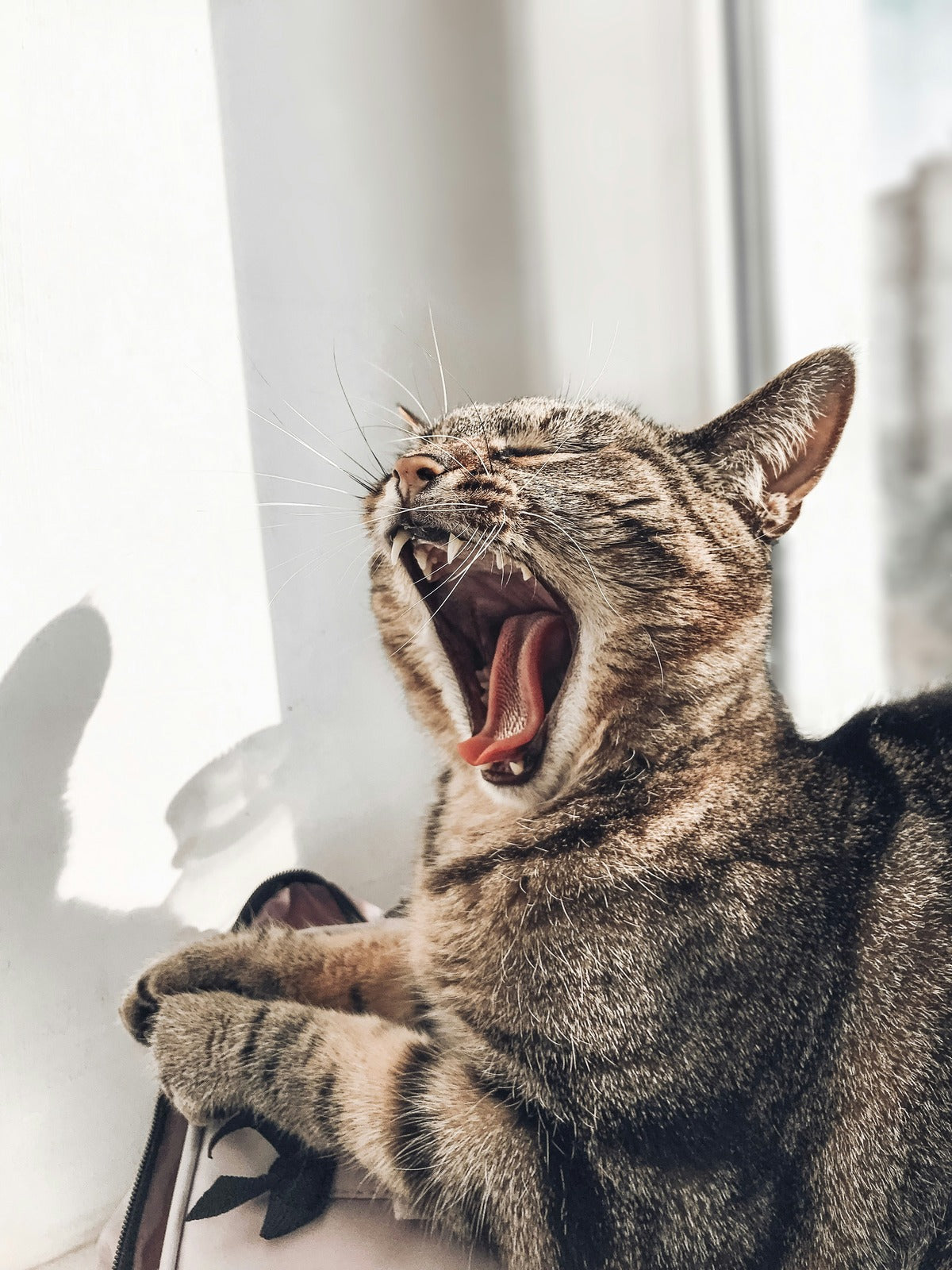5 Common Health Concerns in Cats
Unlock the secret to a healthier, happier cat with these proven strategies! Discover 5 common cat health problems and how you can help prevent them. Learn about feline obesity, worms, urinary tract diseases, diabetes and dental issues and the crucial steps you can take to enhance your cat's quality of life. Don't wait till it's too late - check out our expert insights and prepare to be the ultimate cat guardian.
All pet parents want to provide their furry family members with the highest quality of life possible. Cats are notoriously independent and don’t often show symptoms of illness until they are very sick.
Cats can suffer from a variety of health problems. Diabetes and urinary tract infections are two common problems that cats face.
Be mindful of things such as change in appetite, energy level, or behavior. If your cat is experiencing symptoms, it is best to seek medical advice from a veterinarian.
Here are five common cat health problems and how you may be able to help your cat.

- Feline obesity
When a cat’s weight exceeds 20% above of their idea body weight, they are considered obese. In North American it is estimated that 30-35% of the cat population is obese.
Obese cats are more likely to develop diseases like cancer, heart disease, and arthritis. Obesity can cause cats to develop a life-threatening liver disease that leads to death.
Indoor cats are more likely to be obese due to less activity. Here are some effective strategies to keep your cat from becoming overweight.
- Use interactive toys and set aside time to play with your cat.
- Limit the amount of treats you give.
- Use interactive feeding methods for mealtime.
- Feed high-quality cat food while being mindful of filler ingredients.
- Take your cat for regular vet check ups
- Worms
Indoor and outdoor cats both are at risk to a variety of intestinal parasites. Common worms that infect cats are:
- Tapeworms
- Hookworms
- Roundworms
- Eyeworms
The easiest way for your cat to acquire worms is by ingesting the feces of an infected animal. Mother cats can also pass worms along to her kittens.
Cats can have worms and show no symptoms. Worms can go undetected and cause serious health problems. Some signs your cat might have worms are:
- Lack of appetite
- Diarrhea
- Vomiting
- Weight loss
- Visible worms in feces
- Abdominal tenderness
As a good cat owner, you can prevent worms. Prevent worms by:
- Maintaining a regular deworming schedule.
- Avoid exposing your cat to rodents and other animals and their feces.
- Maintain good litter box hygiene.
- Keep your home flea free

- Feline Lower Urinary Tract Disease
Both male and female cat are prone to feline lower urinary tract disease, a name given to a group of diseases that include:
- Bladder stones
- Cystitis
- Urethral plugs
- Bladder cancer
The demographic most prone to these diseases are unfit and obese cats. Other factors to consider are stress, dry food, and living in a multi-cat household. Symptoms your cat could be experiencing are:
- Painful urination
- Frequent urination
- Inappropriate urination
- Licking around the urinary area
- Blood or puss visible in the urine
- Dribbling of urine
If your cat cannot urinate THIS IS AN EMERGENCY. Seek medical assistance immediately. Luckily there are preventative measures that can be taken:
- Adding a bladder supplement to your cat’s diet.
- Making sure your cat is getting enough water. Consider hydrating kibble if your cat is fed a dry food diet. If you suspect your cat is not drinking enough, consider switching to a fountain style water dish. Cats prefer to drink running water because it is more natural.
- Provide your cat with a stress-free home environment.
- Play with your cat and keep them physically active.
- Diabetes
Cats can get diabetes just like people. Diabetes is when the body is unable to produce insulin, a hormone that controls blood sugar levels. Middle-aged and overweight cats are most at risk for developing diabetes.
One of the first signs your cat might have diabetes is that they are drinking and urinating more than normal. Another is weight loss with no loss of appetite.
Cats who develop diabetes will have to go for insulin shots with a veterinarian. If a cat is treated quickly, it is possible to go into diabetic remission.
Diabetic cats will also need to eat a special diet. A low carbohydrate and high protein diet is shown to improve blood sugar regulation.

- Dental Disease
Dental disease is an extremely common issue in cats. Dental disease becomes more common and severe as cats age. Teeth that are positioned abnormally in a cat’s mouth make them more likely to develop plaque and tartar.
Short-nosed breeds are more likely to have these abnormally positioned teeth because of their small jawbones. Common dental diseases found in cats:
- Gingivitis, an inflammation of the gums.
- Periodontitis, severe damage to the gums and teeth.
- Tooth resorption is when the dentin in a tooth erodes.
Signs your cat might be suffering from dental disease:
- Bad breath
- Drooling
- Discolored teeth
- Visible buildup on teeth
- Loose or missing adult teeth
- Gum irritation
- Difficulty eating
Visit a veterinarian if you suspect your cat has dental disease. A professional teeth cleaning can be done to remove gingivitis. If your cat is diagnosed with Periodontitis a veterinarian will determine the severity and if any teeth will need to be removed. Any teeth found with tooth resorption will need to be removed.
The best way you can prevent dental disease is:
- Take your cat for regular teeth cleanings.
- Brush your cats’ teeth at home.
- Use teeth cleaning treats.
- Use a lick mat to help remove plaque from your cat’s mouth.
- Specially formulated dental diets.
Upgrade Your Pet’s Health the Natural Way
Unlock your pet's health potential with insights from industry expert veterinarian Dr. Michelle Dulake, who combines her vast knowledge and experience to create a thriving, happy life for your furry companion.
At Fera Pet Organics, we’re committed to using only the most natural high-quality ingredients to keep your furry family members healthy and happy for as long as possible.
We’d love to hear from you! What do you want to learn about next? Do you have any comments or questions? Reach us at hello@ferapets.com




